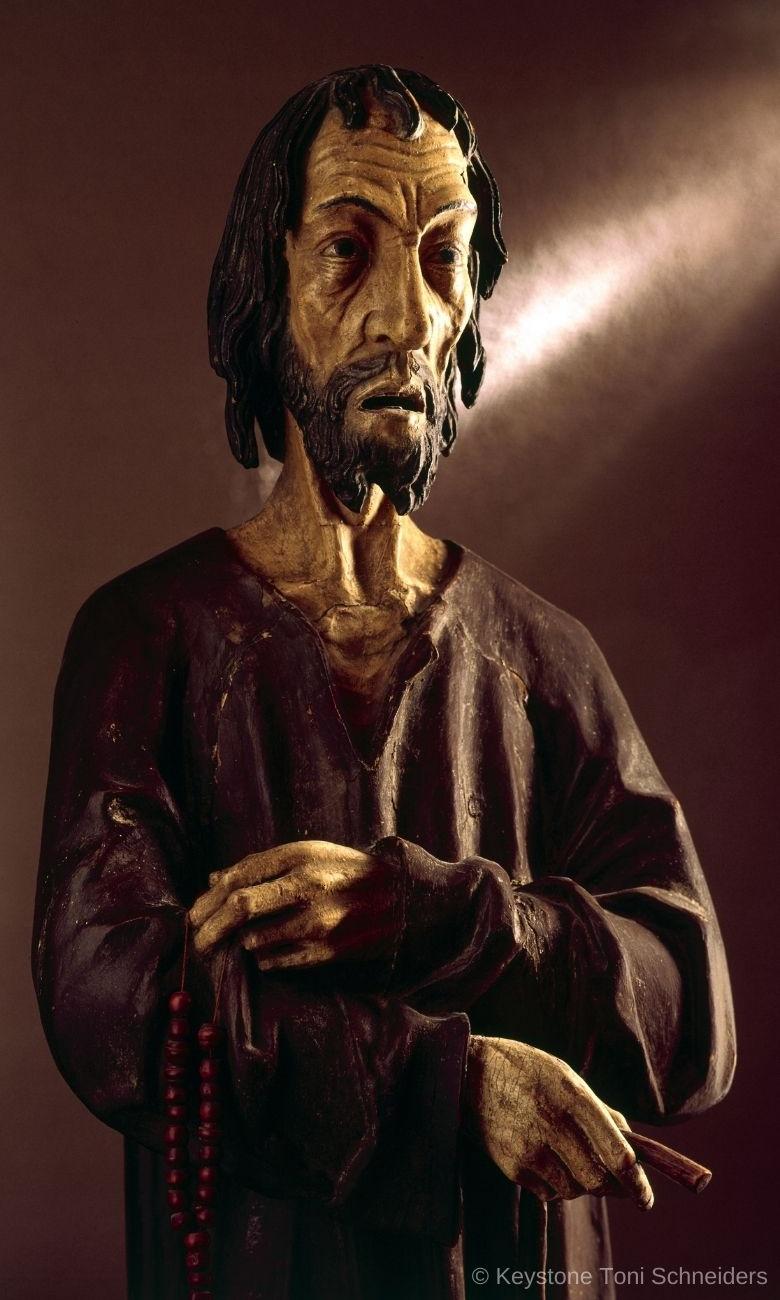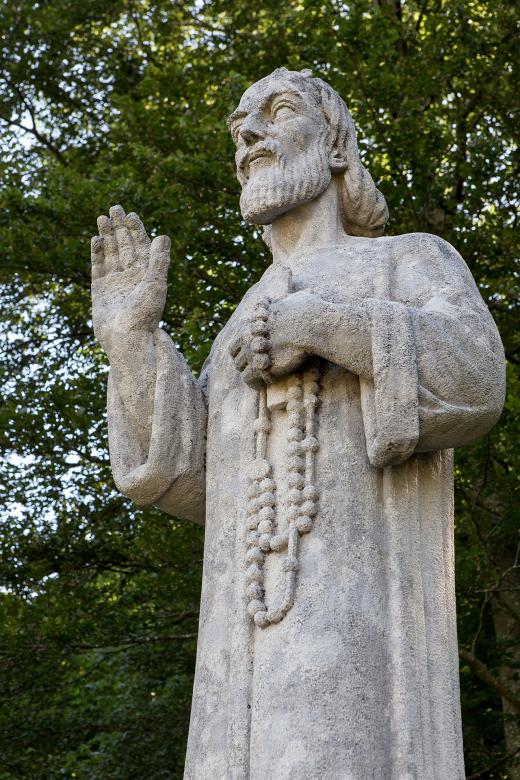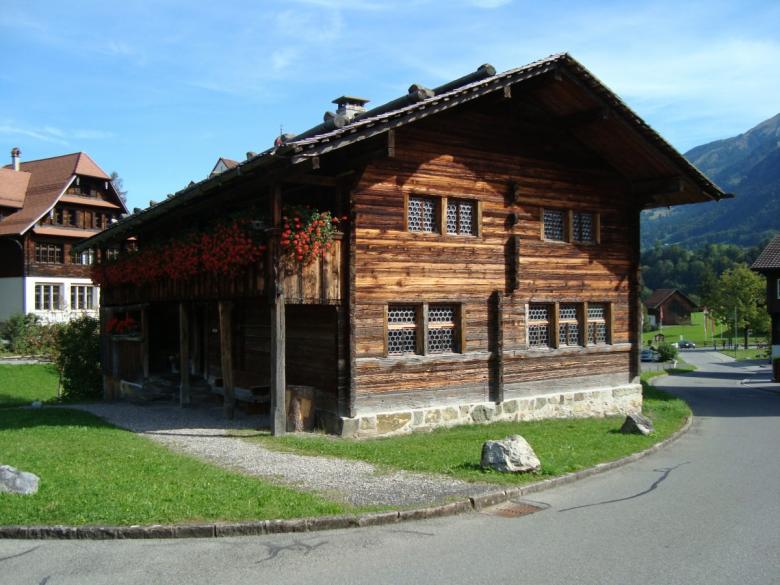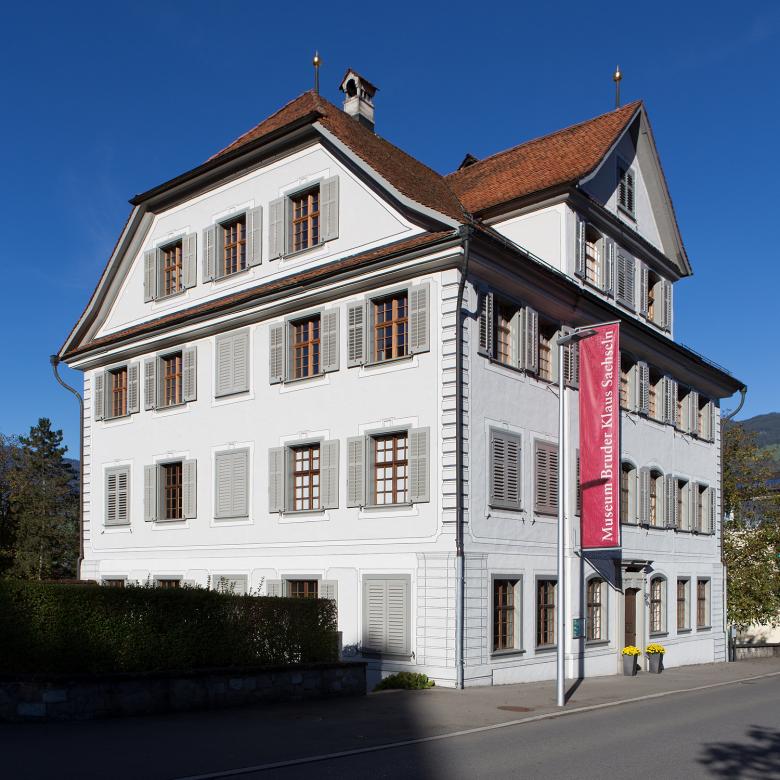St Nicholas of Flüe, a genuine Swiss legend
St Nicholas of Flüe could take first place in the Swiss hall of fame. Nicholas of Flüe, also known as Brother Klaus, was a legendary figure in his lifetime and remains one to this day. Portrait of a peacemaker who is admired far beyond Switzerland's borders.
St Nicholas of Flüe may be less well known than William Tell or Heidi, but he has the great advantage of being real. His life is in fact well documented, despite the six centuries separating us from the troubled times in which he lived, marked by the Hundred Years' War and Burgundian Wars, and despite the remoteness of his rural home, the canton of Obwalden, which winds around Lake Sarnen and is separated from the Swiss plateau by Mount Pilatus.

Patron saint of peace for the world
Roland Gröbli, author of a standard biography, Die Sehnsucht nach dem 'einig Wesen'. Leben und Lehre des Bruder Klaus von Flüe (Rex Luzern, 2006, not translated), confirms that we have a wealth of historical sources: "We have letters, travellers' and contemporaries' accounts, and even books. The first book to mention Nicholas of Flüe was printed in Augsburg just one year after his death. These sources allow us to gain a clear picture of who the man was, with the caveat that Nicholas' contemporaries lived more than five centuries ago and thought and saw the world very differently from us."
So who was this great man from one of the original cantons of the Old Swiss Confederacy? What did he do to attract thousands of pilgrims to his hermitage through the centuries, and to this day, and to earn the title of patron saint of Switzerland and world peace? To find out, we must travel back to the 15th century, as the Middle Ages were drawing to a close and the printing press, the Reformation, the Reconquista and the discovery of America made Europe the centre of the world for more than four hundred years.

Spiritual crisis at age 50
Nicholas was born in 1417 into a family of prosperous farmers in the small village of Flüeli, near the town of Sachseln. He would become a model citizen and serve as a judge in his native canton. He was also a citizen-soldier in the young Confederacy of eight cantons, whose independence, democratic system and military unassailability were a thorn in the side of the great monarchical and imperial powers that surrounded it.
As a young man, Nicholas was different from his peers, as contemporary accounts attest: "He fasted two days a week, eating a little dry bread and dried pears," says Philippe Baud, former chaplain at the EPFL, who has written two books on St Nicholas of Flüe. At the age of 50, Nicholas had a vision that worldly cares were swallowing up his spiritual life and asked his wife Dorothée and grown children for their blessing to leave home and devote himself to a hermit's life of contemplation. They gave him their blessing. On his way to the Rhine Valley, where he planned to withdraw from the world, a farmer told Nicholas to turn back, arguing that he could follow his vocation in his homeland. The future saint decided to withdraw to a hermit's cell a few hundred metres from the family home he had built with his own hands 20 years earlier. But in penance for the comfort of living so close to his family home he resolved to fast, subsisting only on water and the holy Eucharist for the last 19 years of his life. This feat of asceticism made a deep impression on his contemporaries and is undoubtedly a major reason for his fame.

Without him, Switzerland might never have come into being
If posterity has cherished the memory of this illiterate hermit – at the time, few people other than clerics could read and write – it is less for his asceticism than for the wise counsel he gave, which famously saved Switzerland at a time of national peril. In 1481, the eight cantons were at loggerheads over the unevenly distributed spoils of their victory over Burgundy. The four city cantons were pitted against the rural cantons, which opposed the inclusion of Fribourg and Solothurn in the Confederacy. Nicholas was called on to mediate, and his advice enabled an almost miraculous end to the crisis. The Emperor of Austria, the Duke of Milan and other Alpine potentates also sent envoys to Obwalden. In a world undergoing profound change, Brother Klaus was the last, best hope of preserving the peace, halfway between heaven and earth, between the Middle Ages and modernity. Nicholas was a Swiss Buddha, Dalai Lama, and Gandhi all rolled into one.
To the limit of his calling
Was Nicolas an expression of the Swiss spirit? "Yes, absolutely," says Roland Gröbli without hesitation. "Every human being is both influenced by and influences their environment. Nicholas of Flüe was no exception. This raises the question of whether his successful mediation at the Diet of Stans was above all the result of a typically Swiss political compromise or whether he himself played the decisive role." To Philippe Baud this much is certain: Nicholas neither sought nor expected success. "When Nicholas chose a life of seclusion, he never imaged that his hermitage would draw throngs of pilgrims during his lifetime and long after his death. The people of the valley tried to protect him from these intruders. To me, this man is important not for what he said but for what he was: he followed his calling, and his humanity, to the limit."

This article by Philippe Clot was first published in "L'Illustré", January 2017




